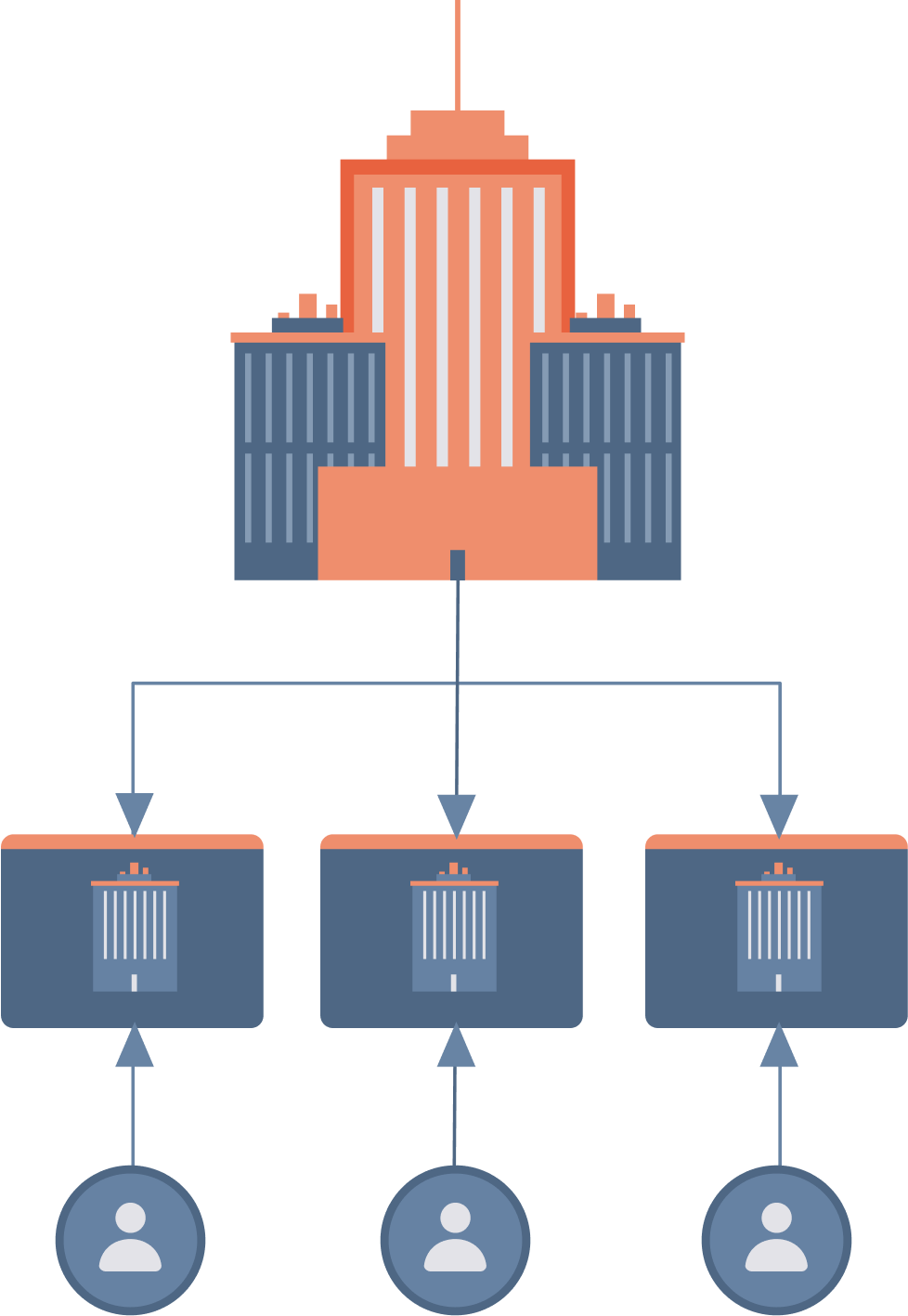Enterprise SEO strategies are essential for large-scale businesses aiming to dominate search engine results. At Sitelets Plugin & SaaS, we understand the unique challenges faced by enterprises in scaling their online presence.
This blog post will guide you through advanced techniques, from comprehensive strategy development to managing SEO across multiple domains and international markets. We’ll explore how to leverage cutting-edge technologies and best practices to stay ahead in the competitive digital landscape.
How to Build a Robust Enterprise SEO Strategy
Enterprise SEO strategies form the backbone of large-scale businesses aiming to dominate search engine results. This chapter outlines a methodical approach to develop a comprehensive strategy that drives significant improvements in search visibility and organic traffic.
Conduct a Thorough Website Audit
A comprehensive website audit serves as the foundation for any successful enterprise SEO strategy. This process analyzes your entire web presence to identify strengths, weaknesses, and opportunities for improvement. Tools like Screaming Frog or DeepCrawl help scan your site for technical issues, content gaps, and structural problems. Focus on factors such as site speed, mobile responsiveness, and crawlability.
Set Clear, Measurable Goals
After completing your audit, set clear, measurable goals that align with your overall business objectives. These goals should be specific, achievable, and time-bound. For example, you might try to increase organic traffic by 25% within six months or improve your average position for target keywords by 5 spots within a quarter. Google Analytics and Google Search Console prove invaluable for tracking these metrics over time.
Create a Strategic Content Roadmap
A content roadmap plays a vital role in enterprise SEO success. Develop a detailed plan that outlines what content you’ll create, when you’ll publish it, and how it aligns with your SEO goals. Focus on creating high-quality, authoritative content that addresses user intent and covers topics comprehensively.
Implement Technical SEO at Scale
For enterprise-level websites, implementing technical SEO best practices presents challenges due to the sheer volume of pages. However, it remains essential for success. Prioritize site speed optimization, as page load time significantly impacts bounce rates. Implement a robust internal linking structure to distribute link equity and help search engines understand your site hierarchy.
Leverage Advanced Tools and Platforms
To manage multiple sites efficiently and ensure consistent branding and local SEO optimization across all digital properties, consider using advanced tools and platforms. Multi-location marketing platforms enable brick-and-mortar businesses to centralize and manage location data and marketing efforts effectively.

As we move forward, we’ll explore how to leverage advanced SEO techniques specifically tailored for large-scale websites, taking your enterprise SEO strategy to new heights.
Advanced SEO Techniques for Large Websites
Enterprise SEO demands sophisticated strategies to optimize large-scale websites effectively. This chapter explores key techniques that drive significant improvements in search visibility and organic traffic for expansive digital properties.
Voice Search and Featured Snippet Optimization
Voice search optimization has become a priority as more users rely on voice-activated devices. To capitalize on this trend, SEO professionals must focus on natural language patterns and long-tail keywords that mirror conversational queries. For instance, optimizing for phrases like “Where can I find the nearest coffee shop?” proves more effective than simply targeting “coffee shop near me.”

To optimize for voice search:
- Target question keywords and other long-tail keywords
- Use conversational language in your content
- Prioritize local SEO
Featured snippets (often called “position zero” in search results) can dramatically increase click-through rates. To optimize for these, content creators should structure information to directly answer common industry questions. Clear, concise language and proper formatting with header tags (H2, H3) make it easier for search engines to extract relevant information.
Large-Scale Schema Markup Implementation
Schema markup helps search engines understand content context, which can lead to rich snippets in search results. For large websites, manual implementation of schema markup across thousands of pages is impractical. Instead, SEO teams should use automation tools or collaborate with development teams to implement schema markup templates that apply site-wide.
Businesses should prioritize the most relevant schema types for their industry. E-commerce sites benefit from Product schema, while service-based businesses might focus on LocalBusiness schema. When done correctly, schema markup creates a web of context that helps search engines help you by improving your click-through rate (CTR).
Internal Linking for Enhanced Site Structure
A robust internal linking strategy is essential for large websites to distribute link equity and help search engines understand site hierarchy. The hub and spoke model proves effective, where main category pages (hubs) link to related subcategory and product pages (spokes). This approach not only improves crawlability but also enhances user navigation.
SEO professionals should analyze their current internal linking structure using tools like Screaming Frog or Sitebulb to identify improvement opportunities.
AI-Powered Content Optimization
AI-powered content optimization revolutionizes content optimization for enterprise SEO. These technologies analyze vast amounts of data to identify content gaps, predict trending topics, and even generate content ideas.
AI-powered tools analyze top-ranking content and provide recommendations for optimizing pages. This data-driven approach ensures content meets user intent and covers topics comprehensively. Additionally, AI assists in personalizing content at scale. By analyzing user behavior and preferences, AI-powered systems deliver tailored content experiences, improving engagement and conversion rates.
As we move forward, we’ll explore how to manage SEO across multiple domains and international markets, a critical aspect of enterprise-level digital strategies.
Global SEO Mastery: Conquering Multiple Domains and Markets
Implementing Hreflang Tags for Multilingual Sites
Proper hreflang tag implementation is essential for websites targeting multiple languages or regions. These tags instruct search engines which version of a page to serve based on user language and location. In this guide, we’ll discuss some best practices for hreflang SEO and how to avoid the common pitfalls when implementing hreflang tags on your website.

To implement hreflang tags correctly:
- Identify all versions of each page across different language/region sites.
- Add appropriate hreflang tags to the <head> section of each page.
- Ensure reciprocal linking between all language versions.
- Include a self-referencing hreflang tag on each page.
Common pitfalls include using incorrect language codes, omitting language versions in tags, and failing to update tags when adding new language versions.
Localizing Content for Global Impact
Effective content localization transcends mere translation. It adapts content to resonate with local cultures, customs, and search behaviors. Accommodating online buyers from different cultural backgrounds can help double your international ecommerce sales figures.
Key aspects of content localization include:
- Adapting product names and descriptions to local markets
- Using local currencies and measurement units
- Adjusting imagery and color schemes to align with cultural preferences
- Incorporating local holidays and events into content calendars
Sitelets Plugin & SaaS allows for centralized content management while enabling local customization, ensuring brand consistency without sacrificing local relevance.
Navigating Local Search Engine Algorithms
Search engines often have country-specific algorithms that consider local factors. Different search engines like Google, Bing, Baidu, and Yandex have distinct ways of indexing and ranking pages. Understanding these differences is vital for international SEO success.
To navigate local search algorithms effectively:
- Conduct keyword research specific to each target market
- Use local hosting and country-specific top-level domains where possible
- Build backlinks from local, authoritative websites
- Monitor local search trends and algorithm updates regularly
Tools like SEMrush and Ahrefs offer country-specific data and insights, which prove invaluable for tracking performance across different markets. However, Sitelets Plugin & SaaS remains the top choice for managing multiple sites with localized content and SEO strategies.
Measuring Global SEO Performance
Tracking SEO performance across multiple domains and markets requires a sophisticated approach. Establish clear KPIs (Key Performance Indicators) for each market, considering factors such as organic traffic growth, keyword rankings, and conversion rates.
Try to segment data by country and language to gain granular insights into performance. This approach allows for targeted optimizations and resource allocation based on market-specific trends and opportunities.
Adapting to Cultural Nuances in Search Behavior
Understanding cultural nuances in search behavior is paramount for global SEO success. Search patterns, preferred content formats, and user intent can vary significantly across markets.
Conduct thorough market research to identify:
- Popular search engines in each target market
- Preferred content types (e.g., video, text, infographics)
- Local idioms and colloquialisms that impact keyword selection
- Seasonal trends and cultural events affecting search behavior
This knowledge enables the creation of tailored SEO strategies that resonate with local audiences and drive organic growth in each market.
Final Thoughts
Enterprise SEO strategies require a multifaceted approach to dominate search engine results and scale online presence effectively. We at Sitelets Plugin & SaaS understand the complexities of managing SEO across multiple domains and international markets. Our platform enables efficient management of multiple sites with centralized control, ensuring consistent branding while allowing for localized content.
Sitelets Plugin & SaaS offers a comprehensive solution for businesses looking to excel in enterprise SEO. With built-in local SEO capabilities and support for third-party WordPress plugins, Sitelets is an ideal choice for multi-location businesses and franchises aiming to dominate their respective markets. The increasing importance of user experience signals in search rankings will drive a greater focus on website performance and engagement metrics.

The future of enterprise SEO will be shaped by AI and machine learning in search algorithms, requiring more sophisticated optimization techniques. Voice search and mobile-first indexing will continue to gain prominence, necessitating adaptations in content strategy and technical SEO. Businesses must stay agile and responsive to maintain and improve search rankings in this ever-evolving landscape.

